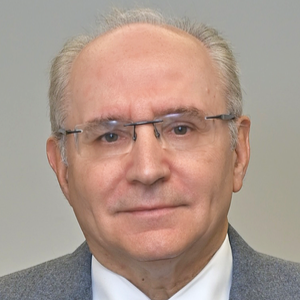Unfortunately, as we age, the infirmities associated with the aging process become an ever-increasing reality. Diseases such as Dementia (Alzheimer’s/Lewy Body Dementia), Parkinson’s, and other neurodegenerative illnesses are often the reason why a Guardian may be needed. Additionally, physical infirmities associated with aging (for example, the inability to ambulate, bathe, dress, feed, and attend to one’s personal hygiene) frequently translate to the need for a Guardian. Finally, if one’s physical and neurological infirmities result in one becoming or potentially becoming a victim of physical, emotional, or financial abuse (or scams), the need for a Guardian is significantly heightened.
With proper planning and the use of Advanced Directives (such as a broad Durable General Power of Attorney (POA), Health Care Proxy (HCP), HIPAA form, and Living Will), the need for a Guardian can be reduced. Yet, while these documents can lessen the risk of needing a Guardian, they don’t necessarily eliminate it; especially if the person needing assistance is uncooperative and/or a victim of abuse. In New York, the Guardianship of the person and property of an adult is governed by Article 81 of the Mental Hygiene Law (MHL). Contrary to common misconceptions, the law does not require that the person be “incompetent.” All that is necessary is that the individual be an “incapacitated” person who is unable to manage their personal and/or financial affairs, and that there isn’t any Advanced Directive in place (e.g., POA, HCP, HIPAA) that obviates the need for the proceeding. Unfortunately, a document such as a POA, which would (if properly drafted and executed) be sufficient to meet the financial needs of the Alleged Incapacitated Person (AIP) is often inadequately drafted to meet those needs.
For example, if the POA does not have broad gifting provisions so that it is possible to convey the AIP’s real property (house, condo, etc.), cooperative apartment, and other assets from the AIP to a spouse, child, trust, or other trusted individual so that Medicaid (nursing home and/or home care) can be obtained, then in that event a Guardianship proceeding may still be needed. Under these circumstances, the commencement of the Guardianship proceeding for the property of the AIP may be the least restrictive intervention that the Court would find to be necessary.
Even if the Advanced Directives are sufficient to meet the personal and financial needs of the person, the Court may determine that a Guardian is still needed because the person is being exploited financially or otherwise by the agent under said POA and/or is vulnerable to exploitation.
Sadly, many seniors are vulnerable to financial and personal abuse as well as scams. One of the unstated purposes of a Guardianship proceeding is to help create a safety net for a person who is unable to appreciate the nature and extent of their limitations (mental, physical, or otherwise).
From a practical perspective, one should first take the necessary steps to help ensure that their parent, sibling, loved one, friend, or other family member execute a durable POA, HCP, and HIPAA form while they have the requisite capacity to do so. These documents will be of tremendous value once the individual is incapacitated and no longer able to make their own personal and/or financial decisions. Additionally, every individual should have a Last Will & Testament and/or Trust in place.
If one has become incapacitated before they can execute any of these Advanced Directives and the estate planning documents, as frequently occurs when one is the victim of a heart attack, stroke, or accident, then an Article 81 Guardianship proceeding may be the only viable option to create the appropriate safety net for the individual. It is important in dealing with those who may be of diminished and/or diminishing capacity to look for the signs that said capacity is diminishing in advance. Testing one’s short-term memory is often a good start, as it is often the first type of memory impacted by cognitive decline.
Anthony J. Enea is the managing attorney of Enea, Scanlan and Sirignano, LLP of White Plains, and Somers New York. He focuses his practice on Wills, Trusts, Estates and Elder Law. Anthony is the Past Chair of the Elder Law and Special Needs Section of the New York State Bar Association (NYSBA) and is the past Chair of the 50+ Section of the NYSBA. He is a Past President and Founding member of the New York Chapter of the National Academy of Elder Law Attorneys (NAELA). Anthony is also a Past President of the Westchester County Bar Foundation and a Past President of the Westchester County Bar Association. He is fluent in Italian. He can be reached at (914) 948-1500 or at a.enea@esslawfirm.com.
















